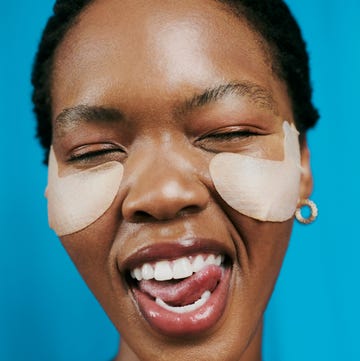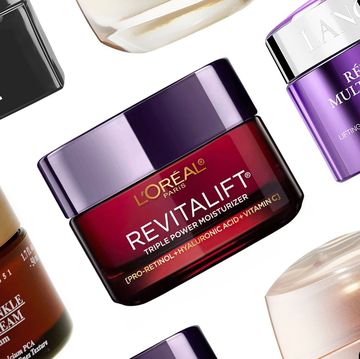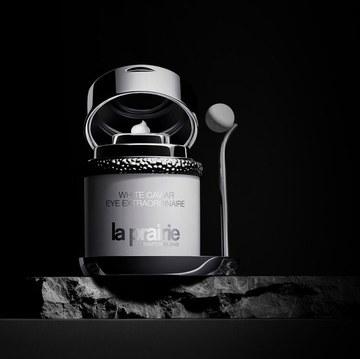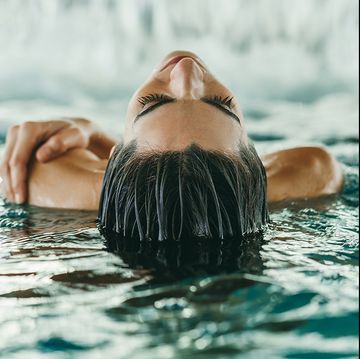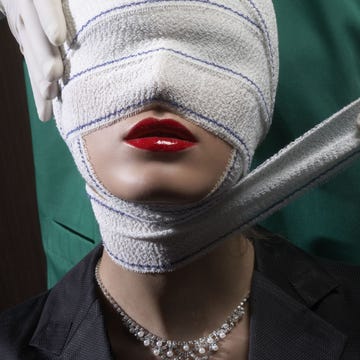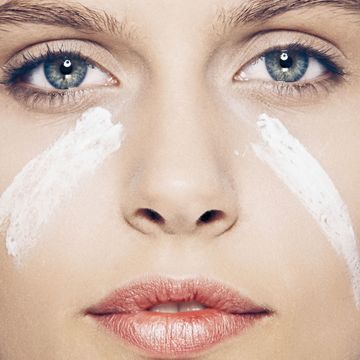Botox is big. Not just big as in popular—although with 6.3 million muscle-paralyzing procedures for cosmetic reasons in 2013, it's definitely that too. "It's a really big molecule," says Jacob Waugh, cofounder and chief scientific officer of Revance Therapeutics, the California company that's behind what it hopes will be the first topical form of botulinum toxin type A, currently named RT001. That's right, imagine the ease: Botox simply rubbed onto your wrinkles. Plenty of people shudder at the mere thought of a flu shot, much less a series of pricks into delicate skin. So a creamlike alternative? Very attractive. What Waugh's team has done to get RT001 to the next phase of the FDA-approval process for the treatment of crow's-feet was previously considered impossible. "Because this molecule is so big, it can't penetrate the skin, which is first and foremost your body's natural barrier." Until now there's been no way to shuttle something so large and get it to the needed depth without injections, says Waugh.
Enter what Revance calls TransMTS, a sophisticated peptide delivery system on which the neurotoxin can piggyback. Once the RT001 gel is applied to the skin and left there for about 30 minutes, it penetrates the skin and delves deeper, ferrying and releasing the neurotoxin to its target—specific nerve receptors that control the muscle—blocking the release of the chemical that causes a muscle to contract, says San Francisco dermatologist Richard Glogau, a Revance consultant. (Injections do the same thing but arrive at the target via the tip of a needle.) The results of phase 2 trials are impressive; in one study, 89 percent of patients saw their crow's-feet smoothed out after a single treatment, with no significant side effects. The treatment usually lasts three to four months, similar to injectable formulations. But it won't be easy to get your hands on: RT001 gel will be available only as a procedure in doctors' offices and under the careful control of trained physicians. Not surprisingly, the folks at Allergan, the maker of Botox Cosmetic, aren't as hyped up about RT001. They don't have a similar topical product in the pipeline, says neurologist Mitchell Brin, Botox chief scientific officer at Allergan, in large part because they don't believe its precision has been established yet. "If your target is on the other side of a natural barrier [the skin], how exact in targeting can you be?" asks Brin. "In this line of work, a centimeter matters. When you use a needle, you go straight to the target." Revance's Waugh counters that the company's studies show the gel to be quite precise, though in some cases RT001 "won't necessarily eliminate the injectable but will be a great complement to it."
For those with a genuine phobia of needles, "this could be a game changer," says New York dermatologist Ellen Marmur. But what's exciting to doctors across a range of specialties is the technology itself. This delivery method opens up huge possibilities for delivering other potent antiaging ingredients. Still, for deeper lines on thicker skin, such as between the brows, it remains to be seen if RT001 can keep up with an injectable, Marmur says. Fredric Brandt, a dermatologist in Miami and New York who has done RT001 clinical trials (and who, incidentally, administers more Botox than anyone else on the planet), adds that it "will be great for someone who wants a really natural, softened look. The toxin diffuses very evenly into the muscle, giving very natural results."
In the end, the FDA will decide if we're ready for "Botox in a bottle." (Revance hopes to report data from phase 3 trials by year's end.) In the meantime, there's Needles No More ($89), Dr. Brandt's much-buzzed-about wrinkle-relaxing cream; Olay Regenerist Luminous Overnight Mask ($26); and Algenist Genius Ultimate Anti-Aging Vitamin C+ Serum ($115). Needles or not, the future looks smoother already.


